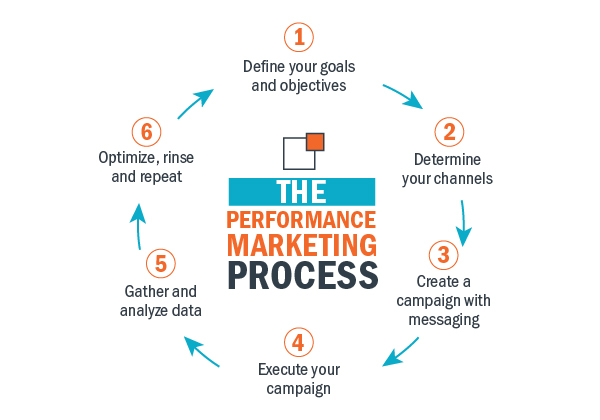Performance marketing is a type of marketing where the success of a campaign is directly measurable based on specific actions taken by the audience. Unlike traditional advertising methods where success can be harder to quantify, performance marketing allows marketers to track and measure the effectiveness of their campaigns with greater precision. In performance marketing, advertisers only pay for the defined actions that are directly linked to the desired outcome, such as clicks, conversions, sales, or other predefined goals. This approach often involves leveraging digital channels such as search engine marketing (SEM), affiliate marketing, email marketing, display advertising, and social media advertising.

Key elements of performance marketing include:
- Measurable Goals:
Performance marketing campaigns are built around clear, measurable objectives, such as acquiring new customers, generating leads, or driving sales.
- Targeted Audience:
Performance marketers identify and target specific audience segments that are most likely to take the desired action, based on demographics, interests, and online behavior.
- Data-Driven Optimization:
Performance marketing relies on data analytics and insights to optimize campaigns for better performance continuously. Marketers analyze key metrics such as return on investment (ROI), cost per acquisition (CPA), conversion rate, and customer lifetime value (CLV) to refine their strategies and maximize results.
- Pay-for-Performance Model:
Advertisers only pay when the desired action is completed, making performance marketing a cost-effective and accountable advertising model. This reduces the risk of wasted ad spend and allows for more efficient allocation of marketing budgets.
- Real-Time Tracking and Reporting:
Performance marketers use advanced tracking technologies to monitor campaign performance in real-time and provide detailed reports on key metrics. This enables them to make data-driven decisions and quickly adjust strategies to optimize results.
Overall, performance marketing offers a more accountable and results-driven approach to advertising, allowing marketers to achieve their marketing objectives more efficiently and effectively. It’s particularly well-suited for businesses looking to drive specific actions and achieve measurable outcomes with their marketing efforts.
